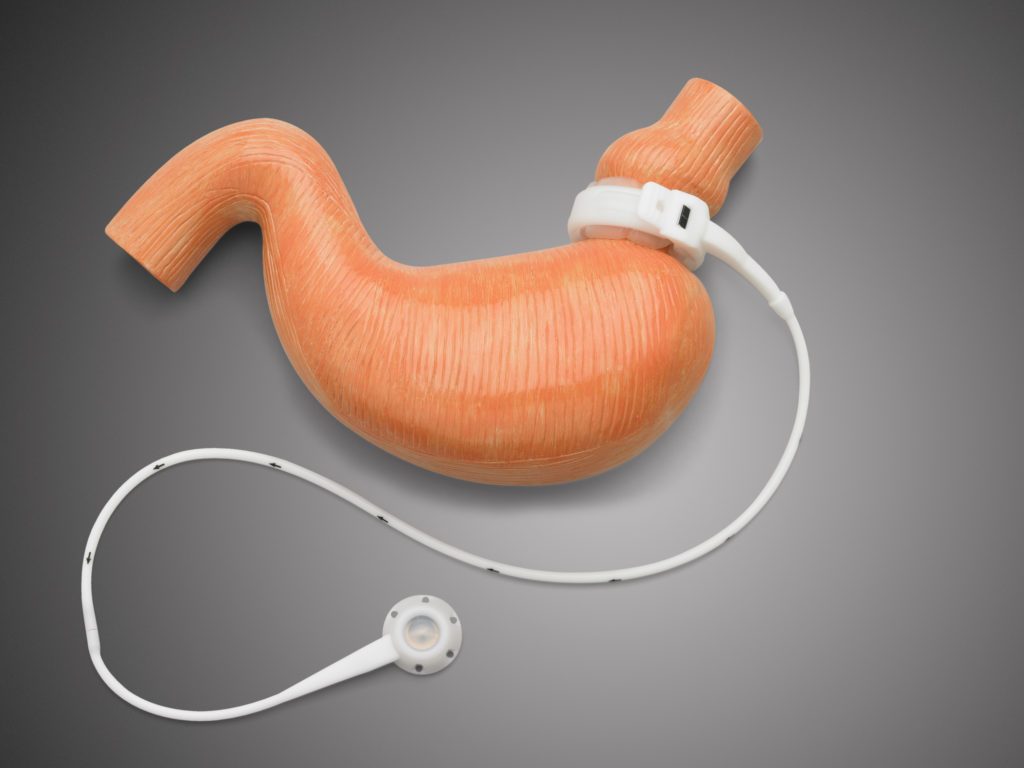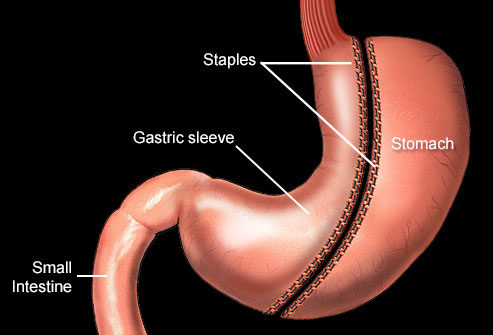Weight Loss Surgery: Can not lose weight and consider a more radical way? Here’s what you need to know about the effectiveness of surgery.
Weight Loss Surgery: Obesity surgery, for whom?
Although high performance, obesity surgery is reserved for people motivated.
It must indeed support the dietary restrictions that entail and subject themselves to a healthy lifestyle: avoid smoking and alcohol, play sports …
Patients are also advised to consult a psychologist for two years, helping come to terms with their new body image, not always easy to accept.
Are eligible for this surgery persons 18 to 60 years, with a body mass index (BMI) greater than 40 or greater than 35 and suffering from overweight-related complications (hypertension, diabetes, osteoarthritis …).
The gastric balloon, it is indicated in smaller overweight (BMI between 25 and 30).
Weight Loss Surgery: >> Calculate your BMI with our calculator
But before deciding on the surgery technique, it is essential to educate themselves to put the odds on your side.
The High Authority for Health (HAS) has published recommendations that she has just put online.
It details the organization of the management, the first appointment with the doctor to follow up after the intervention, and possible complications.
She finally said that the operation alone does not permanently stabilize its weight, and we must also radically change his lifestyle.
Imagine that you spend an hour or two on the operating table and then return home (after one or two days of convalescence) and undertake a weight loss program that finally you will lose 20 to 30 kilos of more.
You change the size of clothes, your energy, and your mood will improve.
Weight Loss Surgery: More Follows
With bariatric surgery, it is possible. This intervention, we practice on obese people in order to make them lose weight, is generally effective, besides the techniques are constantly improving.
However, it is important to understand the principles of this intervention, because the expectations are high, probably too much.
While it is true that surgery can significantly improve health status,
it is the changes it causes in the way of eating and the digestive process that we must attribute the cause. After the procedure, you can not eat as you did before.
The ability of your stomach now being restricted, you have to take much smaller portions. Hence the importance to eat healthy foods.
Above all, read on to know about the latest developments and controversies surrounding this surgical approach.
Weight Loss Surgery: What are your choices?
In Canada, we use essentially two types of intervention.
Firstly, the gastric bypass, which consists in reducing the size of the stomach to that of a golf ball and to connect it directly to the small intestine in order to decrease the absorption of calories.
Second, the adjustable ring gastroplasty: the surgeon stomach strap with an adjustable silicone ring so as to form a pouch. It is then very little food to fill your appetite.
This procedure is performed in subjects whose BMI may not exceed 30, but who have one or more conditions.
Other possible interventions include the biliopancreatic diversion with duodenal switch,
which shrinks the stomach and bypasses 60% of the small intestine, and vertical gastrectomy reduces by 85% the size of the stomach.
Weight Loss Surgery: What about liposuction?
Although this cosmetic surgery is popular (it is sucking the subcutaneous fat), it will remove a portion of fat in certain areas of the body.
Moreover, as it does not involve a change in eating habits, it usually gets lose weight.
Finally, it does not address the fat that is deposited on the bodies which are at the root of many health problems. For these reasons and others, we did not use it to treat obesity.
Weight Loss Surgery: How much would it cost?
Some provinces may cover part of the costs associated with gastric bypass and gastroplasty ring.
A private clinic, it will cost $ 16,000 or more, but you could get a financing plan. Explore the various options with your doctor or surgeon.
Weight Loss Surgery: Are you a good candidate?
If your BMI is 30 or more, likely. However, this could change: researchers are now looking at possible improvements that gastric bypass could bring in people whose BMI does not exceed 27.
This new approach is not limited to the only weight loss; it also has the effect of altering the action of digestive hormones that help regulate blood sugar, hence its name “metabolic surgery”“.
Weight Loss Surgery: How much weight will you lose?
According to Australian researchers who analyzed the results of 43 studies, the first year, you should lose 60-77% of your weight in surplus, provided carefully follow your diet and exercise regularly.
According to the authors of a large study, the differences we observed between the two types of intervention cancel after 5 to 8 years.
Weight Loss Surgery: Are there any side effects?
Yes. According to the results of a large study conducted at the University of New York, the complication rate stood at 9% for gastroplasty and 24% for gastric bypass.
The observed effects were sometimes minor, such as fever, dehydration, nausea, and vomiting, sometimes more serious, including infections, bleeding and accidents requiring further intervention.
Weight Loss Surgery: Here is Short Brief of the popular types of obesity surgery
gastric balloon: for moderate obesity
The technique :
A silicone balloon filled with physiological saline is introduced through the natural routes under general anesthesia. It is then placed in the stomach in order to reduce its size.
We keep an average of six months. It gives a feeling of satiety to more easily follow the recommendations of the nutritionist. It can also be a step before moving on to more intervention.
The benefits of the gastric balloon
We can offer it to anyone and at any age (beyond 60 years).
It is early intervention (ten minutes), painless, and reversible.
It allows us to play down the obesity surgery and see if it is able to subject them permanently to dietary restriction.
The disadvantages of the gastric balloon
Nausea and vomiting may occur after installation.
Weight loss is pretty minimal in the end.
It causes a yo-yo effect which sometimes leads to regaining more weight.
It is not reimbursed by Social Security
Weight Loss Surgery: Gastric banding, simple and reversible
The technique :
Performed laparoscopic (without opening the abdomen), the operation is quick (forty-five minutes to an hour and a half) and painless.
It involves placing a silicone band around the stomach to reduce its volume and control the amount of food absorbed.
A cable and housing located under the skin used to tighten or loosen. It can be kept for life or four or five years, depending on the desired weight loss.
The benefits of the gastric band:
This reversible technique is very effective: the loss may reach 50% of excess weight after twelve to sixteen months
It slows the passage of food but does not disturb the digestion.
Relatively simple, the laying of the gastric band is supported by Social Security.
The disadvantages of the gastric ring
The “blocking” the passage of food can cause vomiting.
The ring can move and stop eating or force it to intervene again.
It does not prevent the absorption of sugar products (sodas, ice cream …).






